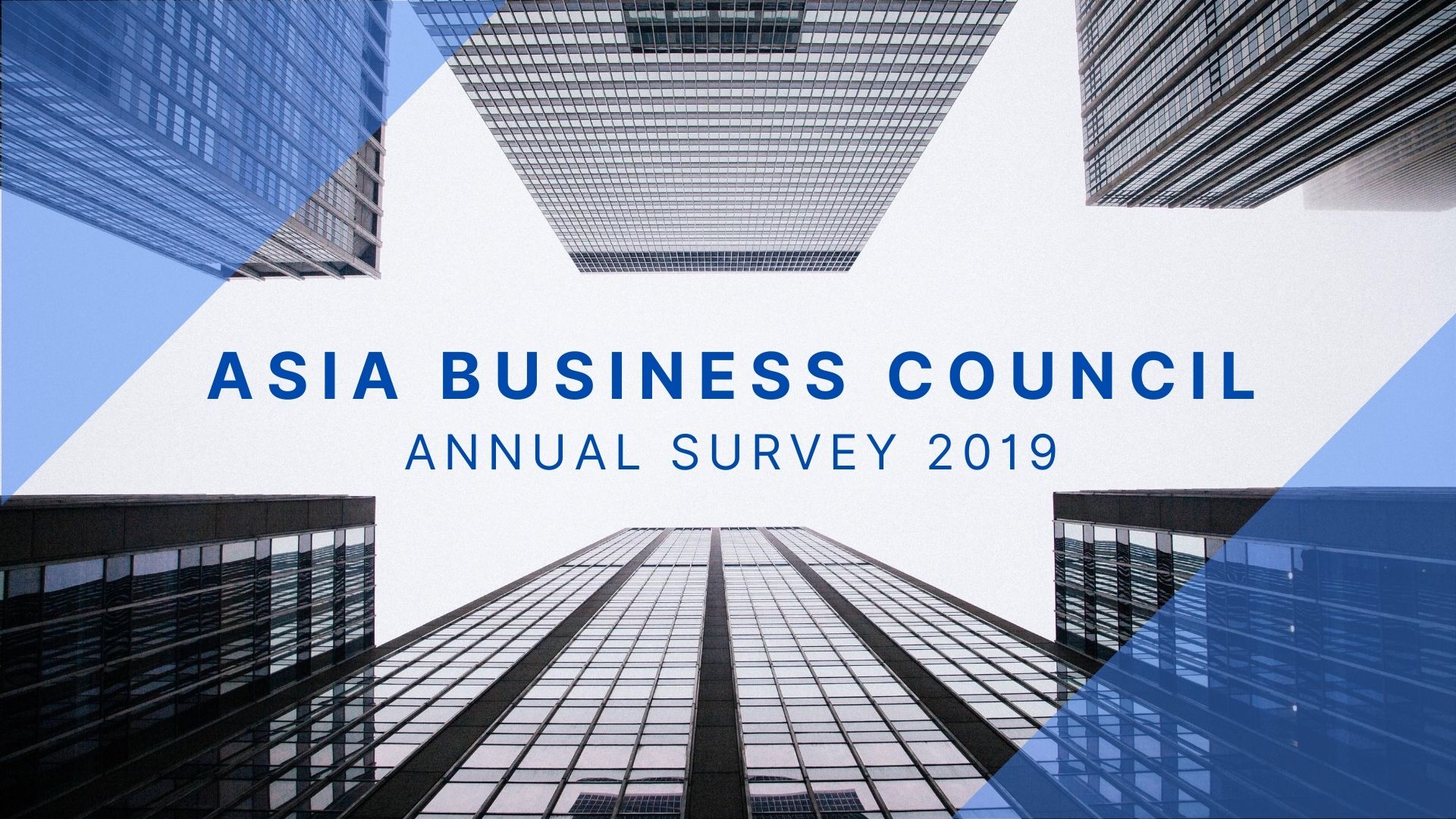The Asia Business Council annual survey of members found business optimism for the year ahead has plunged to the lowest level since the global financial crisis in 2008. The overwhelming reason cited was the U.S.-China trade conflict. Other reasons included concerns about a trade war-induced recession, Japan-South Korea trade disputes, and the impact of Persian Gulf tensions on oil prices. The survey was conducted in July 2019 and yielded a response rate of 76%.
The majority of respondents viewed the impact of the U.S.-China trade conflict on Asian business to be negative. Technology and export-oriented companies, and other businesses with China exposure, are most directly affected. The trade conflict has also led respondents to rethink their investment, especially in China. While the U.S. and China remained top investment destinations, a smaller proportion of respondents are planning investments in the two countries due to trade tensions, and future investment destinations of choice have shifted from primarily the U.S. and China to many more destinations in Asia and beyond. Meanwhile, some Asian economies have become brighter spots for investors. Vietnam, a beneficiary of shifting supply chains amid the trade conflict, replaced China as the most popular planned investment destination in the near future. India was the joint second runner-up with the U.S. as top planned investment destinations. But not all ASEAN countries will benefit from the investment diversion from the trade conflict, owing in part to domestic political and economic challenges.
Technology tied with geopolitics as primary topics of concern for members who responded. Digitization, seeking talent, and keeping pace with technological innovation are cited as challenges for business, as are threats ranging from weaponization of trade policies to the spillover of geopolitics into technology, such as the bifurcation of technology systems.
For an executive summary of the survey results, please click on the link below.

